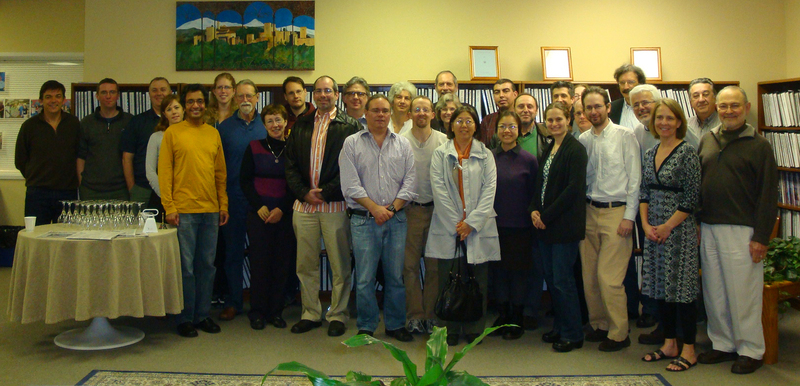
at the
American Institute of Mathematics, San Jose, California
organized by
Bill Barton, Bill McCallum, and Christiane Rousseau
The Klein Project is an IMU (www.mathunion.org) and ICMI (www.mathunion.org/icmi/home/) sponsored program to elaborate the connections between senior secondary school mathematics and mathematics as a research discipline. It is inspired by Felix Klein's work Elementary Mathematics from an Advanced Standpoint, and can be thought of as updating that work for the 21st century. Klein's book for prospective secondary teachers looked at topics in the secondary curriculum from the point of view of an advanced mathematician - not to propose that these ideas become part of the curriculum, but to stimulate the teachers mathematically and better equip them to communicate the linked, growing, exciting discipline of mathematics.
The ultimate products of the Klein Project will be a book and a website. The book, available in ten or more languages, is intended for teachers of senior secondary classes, but of interest to other mathematics teachers from middle school to undergraduate level. The website will be open to members of the community for permanent renewal.
The Klein vision of the nature of mathematics, adopted by the project, is of a growing, highly interconnected, and living field. In order to capture this, we need mathematicians from a diversity of areas to be talking together about how they link to each other and how their fields are in the process of growing. We need a similar diversity to understand the wide variety of ways that mathematicians work, the different sources of their problems, the different approaches they use, the different connections to fields outside mathematics.
The Klein Project has been through an initial phase of national meetings at which mathematicians and mathematics educators and school teachers have come together to discuss both the form and content of the intended book. Since such a book can be neither definitive nor comprehensive, and must be widely accessible, the concept of a "vignette" has been developed. Chapters in the book will be short, arranged around broad topics within the modern field of mathematics. However the key ideas will be illustrated through short vignettes that will start from material familiar to teachers (that is, undergraduate level mathematics, or familiar applications) and then develop wider concepts that capture something of the essence of mathematics.
The Workshop will be the first opportunity for the Klein Project to develop and refine a collection of vignettes. The process will consist of two plenary talks each morning on topics within the modern field of mathematics, focussing on the important characteristics of the topic, rather than the technical detail. In the afternoon participants will work in groups on writing, refining, resourcing specific vignettes on topics of their choice.
The process of developing a vignette requires several different skills, thus a working group that is able to draw on various areas of expertise is needed. Not only will it be necessary to have in the group a research-informed expert in that topic, but also there will need to be good writers, and those who understand the interests and levels of the intended audience (secondary school teachers). It has been our experience so far in the project that extremely productive working teams of mathematicians and teachers are possible.
We anticipate that participants will be invited to suggest themes for vignettes before the workshop begins, and these will be posted on the workshop website. The lectures at the workshop will potentially be a source for vignettes, but groups will not necessarily work on those topics.
The workshop schedule.
A report on the workshop activities.
Papers arising from the workshop: